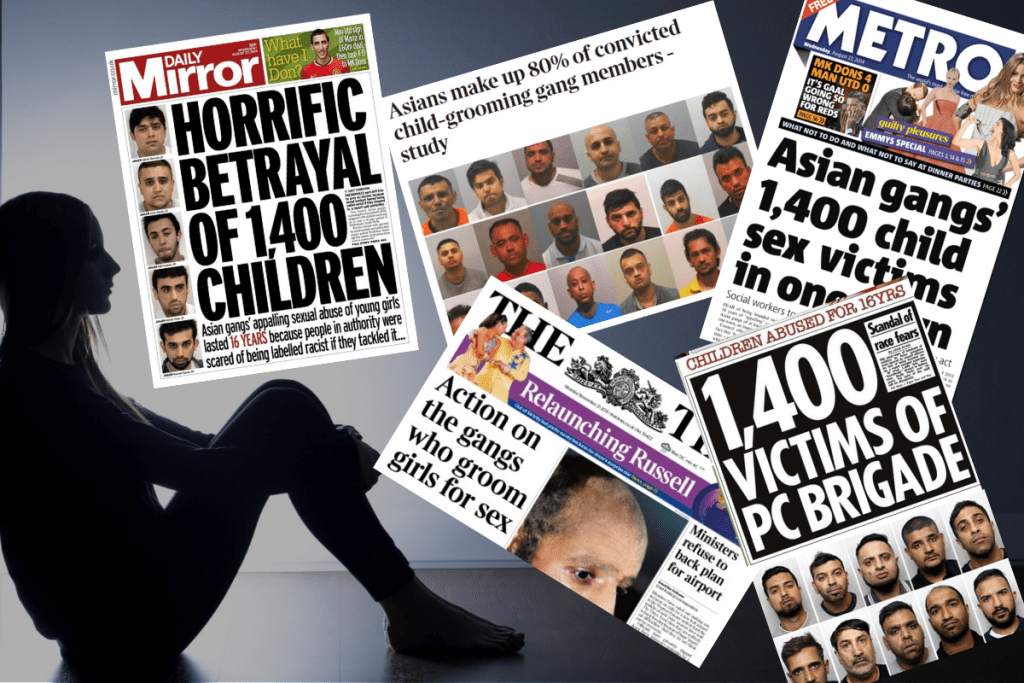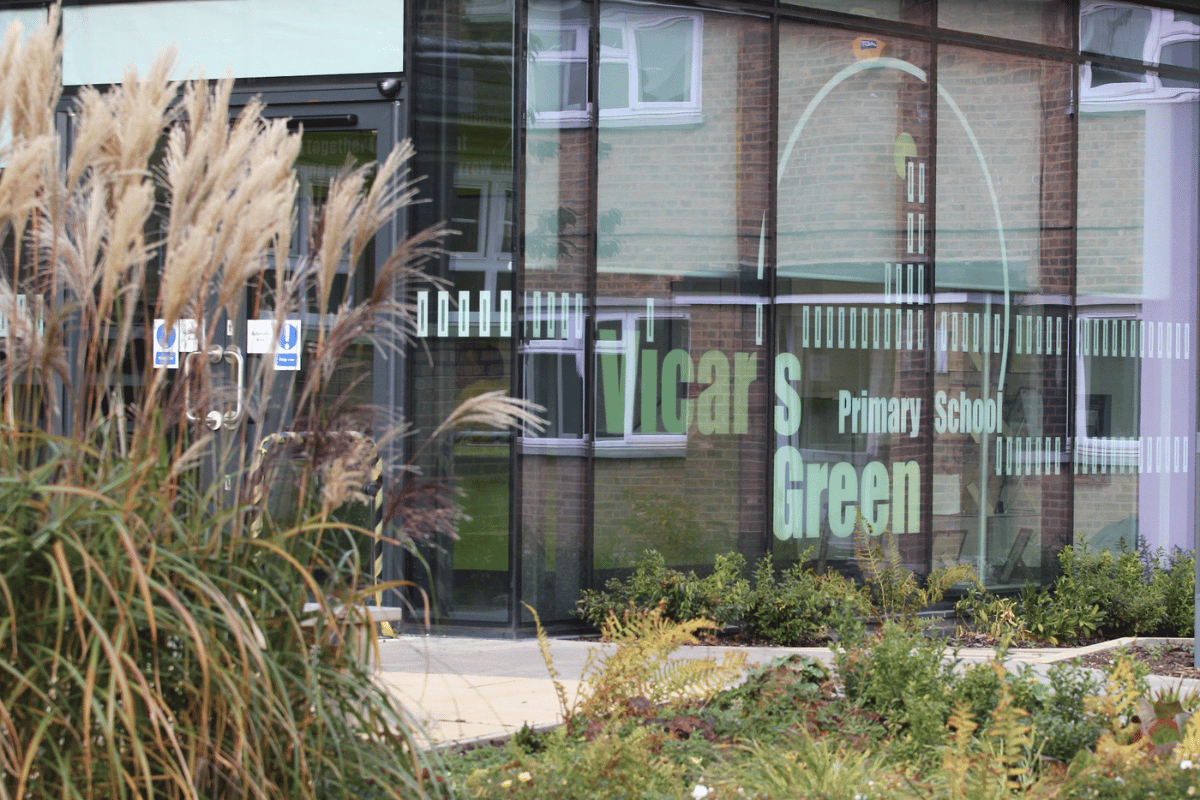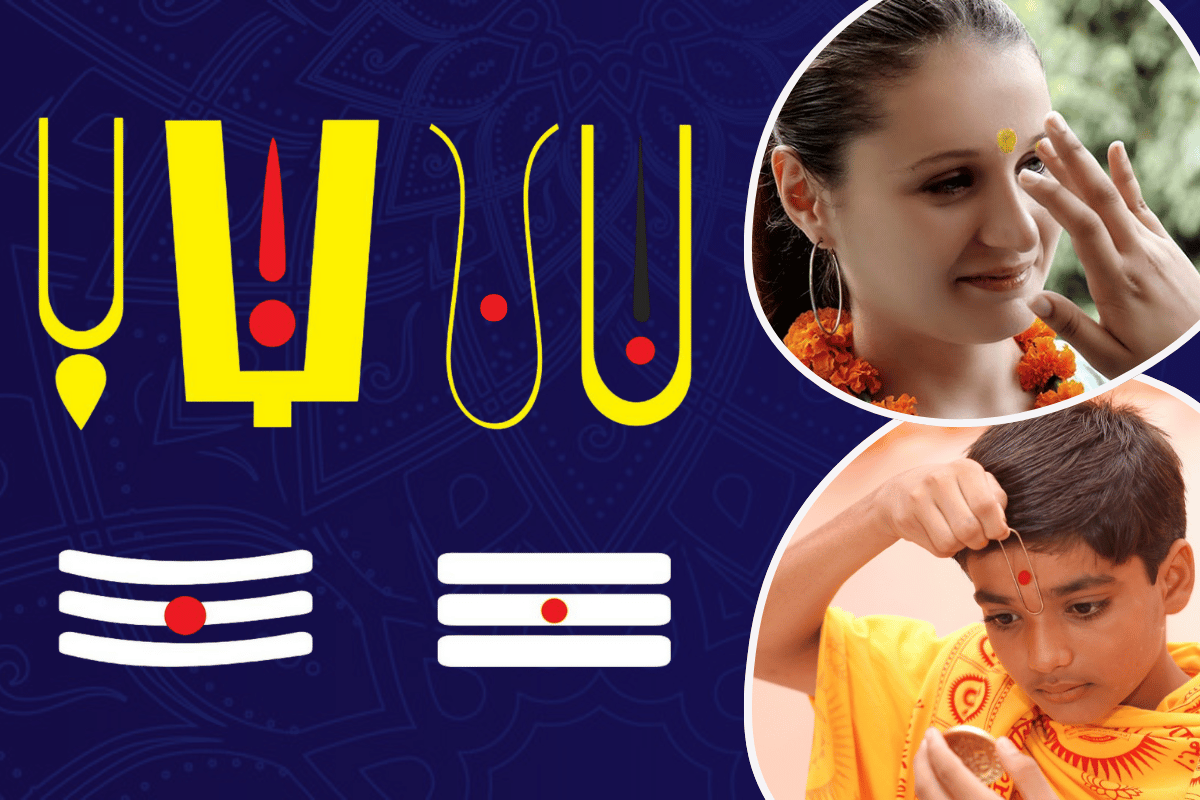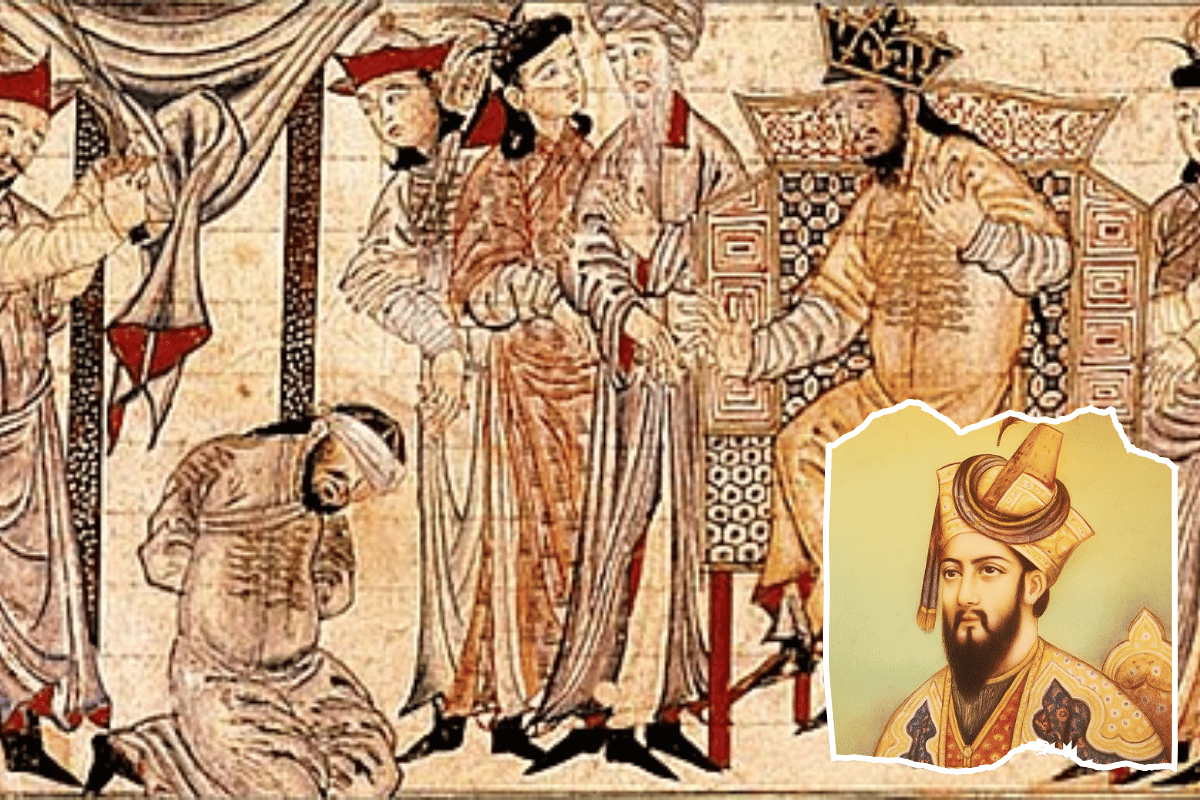
The recent release of the Casey report has once again brought to light one of Britain’s most harrowing and long-standing failures: the systemic grooming and abuse of vulnerable young girls, overwhelmingly by gangs of Pakistani Muslim men. Yet, despite the overwhelming evidence, the British public is still being deliberately misled by language.

Britain’s grooming gangs are predominantly of Pakistani-Muslim heritage, yet the media and authorities chose to use the term “Asian”
INSIGHT UK has been campaigning for over five years to bring attention to the misuse of the term “Asian” in describing grooming gangs. With the government’s announcement of a new national inquiry, it’s a battle we must now confront head‑on because if we cannot be honest and accurate about the perpetrators, we will never be able to solve the problem.
Make no mistake, these grooming gangs are not generically “Asian.” They predominantly constitute men from a Pakistani, Muslim background, a fact asserted by campaigners and victims for decades, and confirmed in Baroness Casey’s national audit of 16 June 2025. Grooming gangs in UK thrived in ‘culture of ignorance’, Casey report says
These grooming gangs are not generically ‘Asian’
They predominantly constitute men from a Pakistani-Muslim background, a fact asserted by campaigners and victims for decades, and confirmed in Baroness Casey’s report. “In high-profile cases such as Rotherham, Rochdale, Halifax and Huddersfield, the offending groups were overwhelmingly of Pakistani Muslim heritage—not a generic ‘Asian’ demographic”. Government documents specifically reference ‘disproportionate numbers of men from Asian ethnic backgrounds amongst suspects,’ and local data show that suspects of Pakistani heritage make up the majority in key cases.” Flawed Data used to dismiss grooming gangs
The consequences of this obfuscation are significant. Asia is the largest continent in the world, home to some 48 countries and around 4.2 billion people. The term “Asian” encompasses people from Japan to Jordan, from Malaysia to Mongolia, and from India to Indonesia. Using this broad-brush label to describe crimes committed by a narrow and specific group of offenders is not only inaccurate but also harmful. It creates the illusion of shared guilt among entire communities that had absolutely nothing to do with these crimes.
British Hindus & Indians have felt the sting of this injustice acutely. Alongside our Sikh, Jain, and Buddhist brothers and sisters, we are routinely lumped in with the perpetrators of this crime, simply because our backgrounds fall under the same continental umbrella. Worse still, members of our communities have also been victims of the very same Pakistani Muslim grooming gangs, targeted for grooming, abuse, and religious conversion over the past 20 years at least, with little recognition from the media or protection from the state.
British Hindus & Indians have felt the sting of this injustice acutely…
We are being made invisible in the name of political correctness.
This whitewashing of ethnic and religious identity in reporting is not accidental. It is, in many cases, a result of pressure from activist groups like the Centre for Media Monitoring, which operates under the Muslim Council of Britain. These organisations respond to coverage by lodging complaints, often accusing critics of Islamophobia—a tactic that has had a chilling effect on candid reporting. They have shut down legitimate criticism and accurate reporting.
The Centre for Media Monitoring has targeted politicians and journalists, continually making complaints to IPSO and compiling reports criticising outlets’ language. A 2025 Policy Exchange analysis noted that CfMM has “only identified a minimal number of false media stories… and frequently pushes for language guidelines under the guise of fighting Islamophobia.” Suella Braverman UK-Pakistani grooming claim misleading, says press regulator
Take, for instance, former Home Secretary Suella Braverman’s 2023 Mail on Sunday op‑ed, where she wrote that the perpetrators were “groups of men, almost all British-Pakistani” Grooming gangs and ethnicity: What does the evidence say?. CfMM lodged a complaint, and while IPSO did force a correction stating the comment applied only to high-profile cases, the public clarification did not fully accompany the revision, evidencing the regulator’s plea for vague language.
Then there was CfMM’s campaign against GB News, including a December 2024 report accusing the channel of “regularly misleads its audience about Muslims by using outright lies to misrepresent and uncontextualized claims about so‑called ‘grooming gangs.’”
In their eagerness to avoid causing offence and out of concern over repercussions from organisations such as CfMM, reporters have fostered a climate of enabling silence and sowing confusion.
In the BBC’s coverage of the Casey report on Monday, the word “Pakistani” was conspicuously absent, even though the audit specifically found “disproportionate numbers of men from Asian ethnic backgrounds … in Greater Manchester, South and West Yorkshire” Only after public backlash did they update the article. This isn’t an isolated incident—it’s a pattern. And it has dangerous consequences.
When victims see that authorities are afraid to name their abusers’ backgrounds, they lose trust in the system. When the public sees entire communities falsely implicated, resentment festers. And when the truth is denied, justice is denied.
Naming the ethnicity and religion of perpetrators isn’t about fuelling division. It’s about accuracy, accountability, and the need for culturally specific solutions. If there are issues of misogyny, religious supremacy, or communal silence within a particular group, they must be tackled within that context, not hidden behind euphemisms.
Let us be absolutely clear: not every Pakistani Muslim man is a criminal, and not every grooming case involves Pakistani Muslim men. But in the cases that do, we must have the courage to say so. Generalisations harm everyone. Precision protects the innocent and brings the guilty to justice.
British Asian communities are diverse, vibrant, and law‑abiding. But that diversity is rendered meaningless when we are all painted with the same brush. It is time for our institutions, government, police and the media to stop hiding behind vague language. If we truly want to confront grooming gangs and end the abuse, we must begin by speaking the truth.
Only truth and honesty can lead to change
Britain cannot fix what it refuses to face. For too long, vague terms like “Asian grooming gangs” have hidden the specific cultural dynamics behind these crimes, harming victims and unfairly stigmatising entire communities.
This is not about division. It’s about honesty, justice, and protecting the innocent. Law-abiding British Asians deserve accuracy, not collective blame. Victims deserve a system that names the truth without fear.
The time for euphemism is over. If we are serious about tackling grooming gangs, we must be serious about speaking plainly. Only the truth can lead to accountability and real change.








